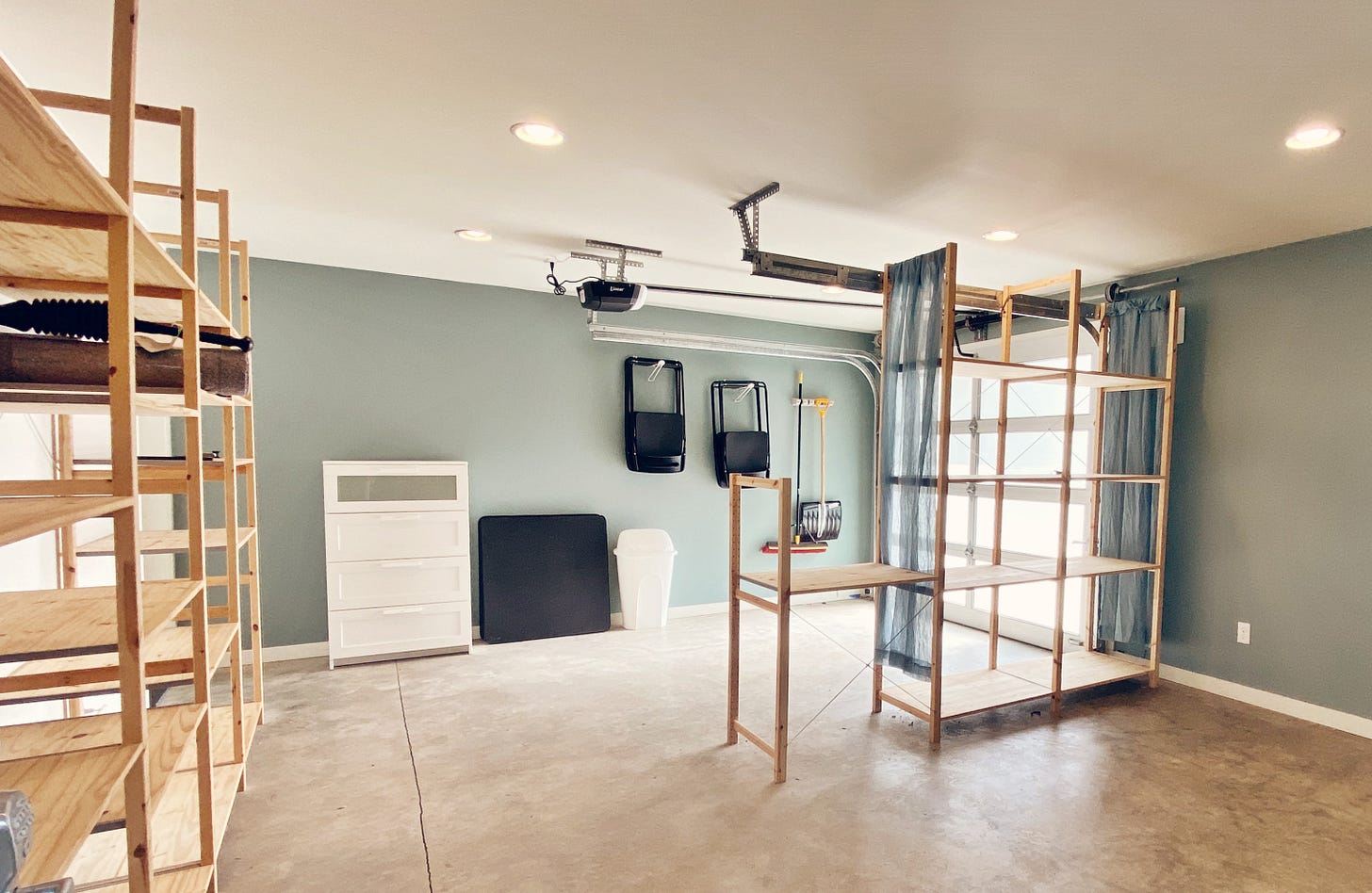The unbearable lightness of getting rid of things
You can do this. We can do this. Promise.
I shared a list a few weeks ago of places that will take items you’re getting rid of and reuse or recycle them (click here if you missed “5 No-guilt ways to part with clutter”).
But what if you can’t even get started? If you can’t bear to part with your clutter? What if it causes you physical pain to imagine getting rid of things…even though you know you should?
This post is for you!
Building the muscle of decluttering is a useful lifelong skill. The more you do it, the easier it gets—promise! Believe it or not, I used to be a collector, a hanger-on of memories. I had bins and bins of mementos. Magazine clippings, posters, and old ballet pointe shoes covered all the walls of my childhood bedroom.
But over the years I became a decluttering bodybuilder (how far will I take this metaphor?) and now I get a surge of dopamine whenever I get rid of something. I even get dopamine when I reminisce about getting rid of things. The rewards are there if you can push through the initial resistance.
Decluttering’s siren song calls you, reader, promising many riches:
Aforementioned dopamine hits
Time back. You’ll be shocked how much time you’d been spending dealing with and working around clutter. Everyone who massively declutters notices how much more free time they have afterwards.
Lower stress. Looking at clutter raises cortisol levels (our stress hormone), particularly in women.
Saved money. Decluttering teaches your body that it’s painful to accumulate things, making impulse purchases less fun.
With our motivation refreshed, I’ll next cover what clutter is, technically. Then we’ll explore strategies for parting with the most challenging types of clutter.
Find out what’s really going on
Let’s define our terms quickly. Clutter is stuff you don’t use regularly or enjoy looking at. Most pro organizers agree that if you don’t use it or deeply love and display it, then it’s extraneous and likely needs to go.
Know that clutter is never about the Stuff. Whether you’re a minimalist or maximalist, holding onto stuff that isn’t serving you isn’t about the objects themselves.It’s rather about the emotions underneath, so if you’re struggling then consider what the stuff represents to you, or what it’s helping cover up.
For instance:
If you hang onto old magazines, books, etc, could it be about feeling insecure about missing important information?
Could the inherited china (or inherited whatever it is) be about missing the person who passed away, or a self-identity that it’s your job to preserve the family history? Is this a role you truly need to take on?
Could your collection of concert posters be about remembering the person you used to be, who used to go to lots of concerts? Does getting rid of them make you worry you’ll be losing a part of yourself?
What about your hoard of craft supplies? Do you collect art supplies you never use because you have a vision of being the sort of person who makes art every day? (This is called identity clutter.)
The endless pseudo-frugality of “what if I need this one day” could be covering past trauma you haven’t processed, or a scarcity mindset.



